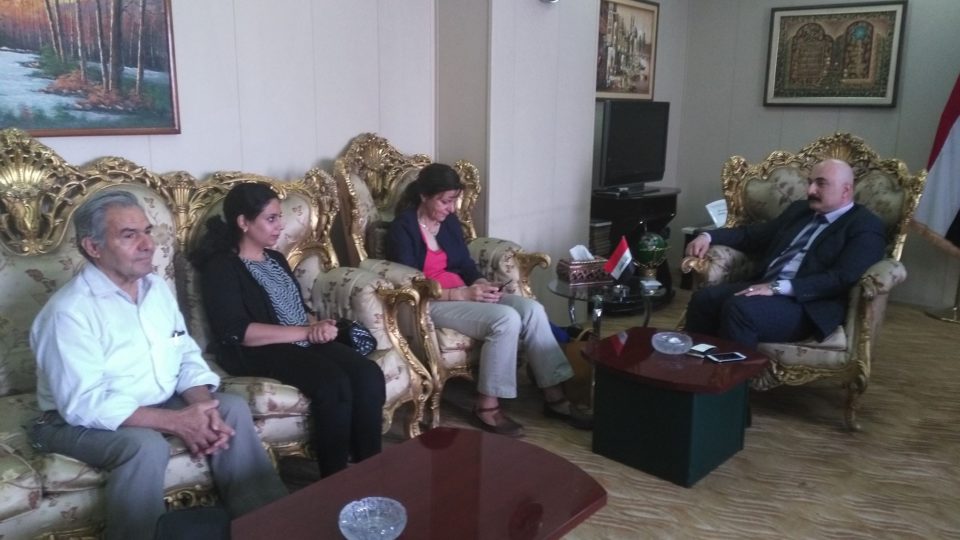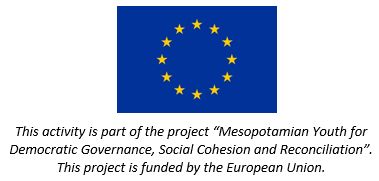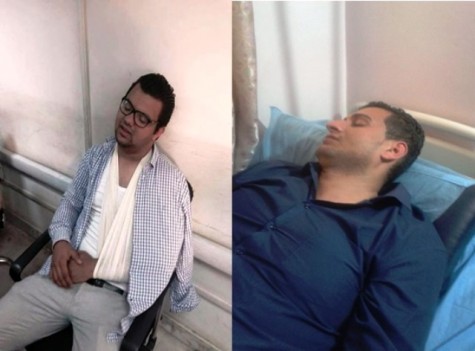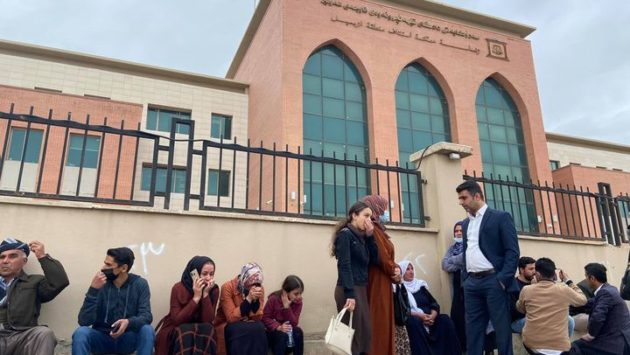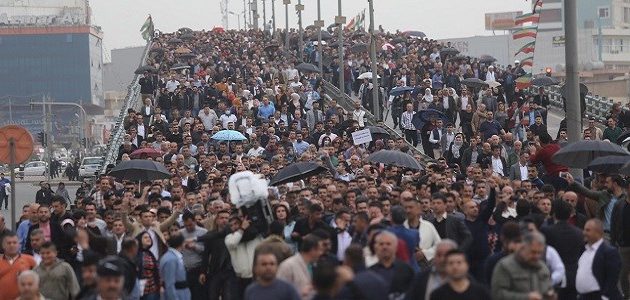Reviewing the Draft Law on Freedom of Expression in Iraq
The Iraqi parliament is currently working on a freedom of expression draft law. This legislation contains several articles which civil society believes would curb free speech in Iraq. The ‘Media’ working group of ‘Mesopotamian Youth’ based in Baghdad, together with the Article 38 Coalition and the Iraqi Social Forum discussed this new freedom of expression draft law in a seminar during which members of the group convened in the National Journalists Association Headquarters in Baghdad. The goal of the seminar was to train media professionals in the particularities and legal context of the draft law, and to give them the tools to maintain open and free discourse in Iraq.
The draft law can be seen as an attempt to restrict rights that are fundamental to the practice of democracy and accountability, says activist Mohamed al-Salami. According to him, the draft law was written in response to escalating demonstrations which took place in 2013 to protest the lack of services in the country and to call for the abolition of a retirement allowance for members of the House of Representatives, who often serve for only a limited amount of time. The fact that amendments to laws are being proposed within voting sessions is problematic as well, explains Marawa al-Janabi. This prevents draft laws from being reviewed by specialized committees.
Below is an analysis of the draft law on freedom of expression by Mohamed Al-Salami and the ‘Media’ working group, demonstrating the many catches it contains.
a. Article 1, Paragraph 1: restricts freedom of expression, the right to demonstrate and assemble to only those considered “citizens”, thus foreign workers have no rights. Yet, the right to freedom of expression and assembly is a human right, and thus applies to all people, regardless of citizenship (Art 19 and 20, UDHR).
b. Article 1, Paragraph 5: defines “peaceful demonstration” as “a limited number of citizens who gather to express their opinions or claim their rights as guaranteed by law.” However, the Iraqi constitution guarantees the Iraqi people the right to peaceful demonstration and makes no explicit limit to the size (Article 38 paragraph 3); as the Iraqi Constitution is the supreme law, this bill cannot legitimately curb this right.
c. Article 4: guarantees the freedom to carry out scientific research through scientific experiments, including access to the means and conditions necessary for such research. It also ensures the free dissemination of the results of all practical experiments. While this is important, it does not mention any guarantee for freedom of research in humanities, in social sciences or other disciplines.
d. Article 5, Paragraph 2: states “The disrespect of religions, sects and beliefs, and the disparagement of it or of those of its adherents”. This term is too vague for it might be used to condemn any discussion or research on religious issues as disrespectful.
e. Article 7: stipulates conditions in order for public assembly or demonstrations to take place:
– Obtain prior permission from authorities
– Permission must be given 5 days prior to the event
– Names of all members of the Organizing Committee
Permission from administrative authorities should be sufficient. Otherwise this article effectively denies the free exercise of public assembly or demonstration, which under this article would be controlled by the government.
f. Article 8, Paragraphs 2 and 3; Article 10, Paragraph 2: Article 8 states that public meetings cannot take place on public roads, and they cannot extend beyond 10pm, (paragraphs 2 and 3, respectively). Article 10 states that demonstrations are not allowed to be organized before 7am. Thus, this limits the timing of assemblies and meetings.
g. Article 13: includes 6 paragraphs aimed at the protection of religious services and dogmas without taking into account freedom of expression and peaceful demonstration. The right to believe and practice one’s religion, along with any accompanying rituals must be in place if Iraq wants to be in accord with international standards. Yet this draft law puts in place punishment — including imprisonment or fines — for all who publicly criticize certain religious sects, deliberately disrupt religious services or distort religious symbols, or vandalize, damage, mutilate or defile any prayer house, symbols or other religious sanctities, or publicly insult a person of respect belonging to a religious sect. These paragraphs allow for such broad interpretation that officials can easily justify punishing anyone.

h. Additional sections: earlier in 2017 amendments which have not been referred to parliament have been added to the draft law, including the right of the Prime Minister to prevent any public meeting or peaceful demonstration, even if there is prior notice, in the name of national security.
i. Omissions: the right to organize a sit-in is a form of freedom of expression guaranteed by international conventions and the Iraqi constitution (Article 38). However, this draft law neglects to mention this right. Activists believe this curbs the right to demonstrate.
Restrictions on freedom of expression
According to activist Imad Jassem freedom of expression is not absolute and can be restricted when it conflicts with other rights (such as hate speech or incitement to murder). However, international law declares that freedom of expression is the rule, and that any restrictions on it are the exception, allowed only in order to protect the rights of others, national security, public order, public health and morals (as stated in Article 19 (3) of the International Covenant on Civil and Political Rights). A restriction is legal only if it meets very specific and well-defined conditions, says Imad Jassem. The right to freedom of expression cannot be limited according to the whims of the person in charge of law enforcement. Rather, laws and formally recognized regulations should be applied only by legislative authorities and law enforcement.
Sanctions against journalists and media professionals
People who were to violate the law on freedom of expression and have to appear in Iraqi court, would have to do so in a civil lawsuit or in a criminal case, lawyer Marwa al-Janabi explains. In a civil lawsuit the purpose is to seek compensation for any material and/or moral damage caused to the plaintiff as a result of the defendant’s publication. All appeals against civil action decisions are reviewed by the Court of Appeal. After the completion of the investigation proceedings, the investigating judge either decides to close the case due to insufficient evidence or he/she refers it to the Misdemeanors Court to decide. The appeal is reviewed by the Court of Cassation. Al-Janabi added that the problem has been exacerbated by the abolition of the Court of Publishing, which was staffed by experts in the field, capable of interpreting complicated cases requiring expertise. Since its abolition all cases related to publications are classified simply as ‘defamation crimes’.
The ‘Media’ group concludes that a distinction should be made between digital and physical freedom of expression. Furthermore, civil society will always remain committed to engage and have an open dialogue with authorities.


